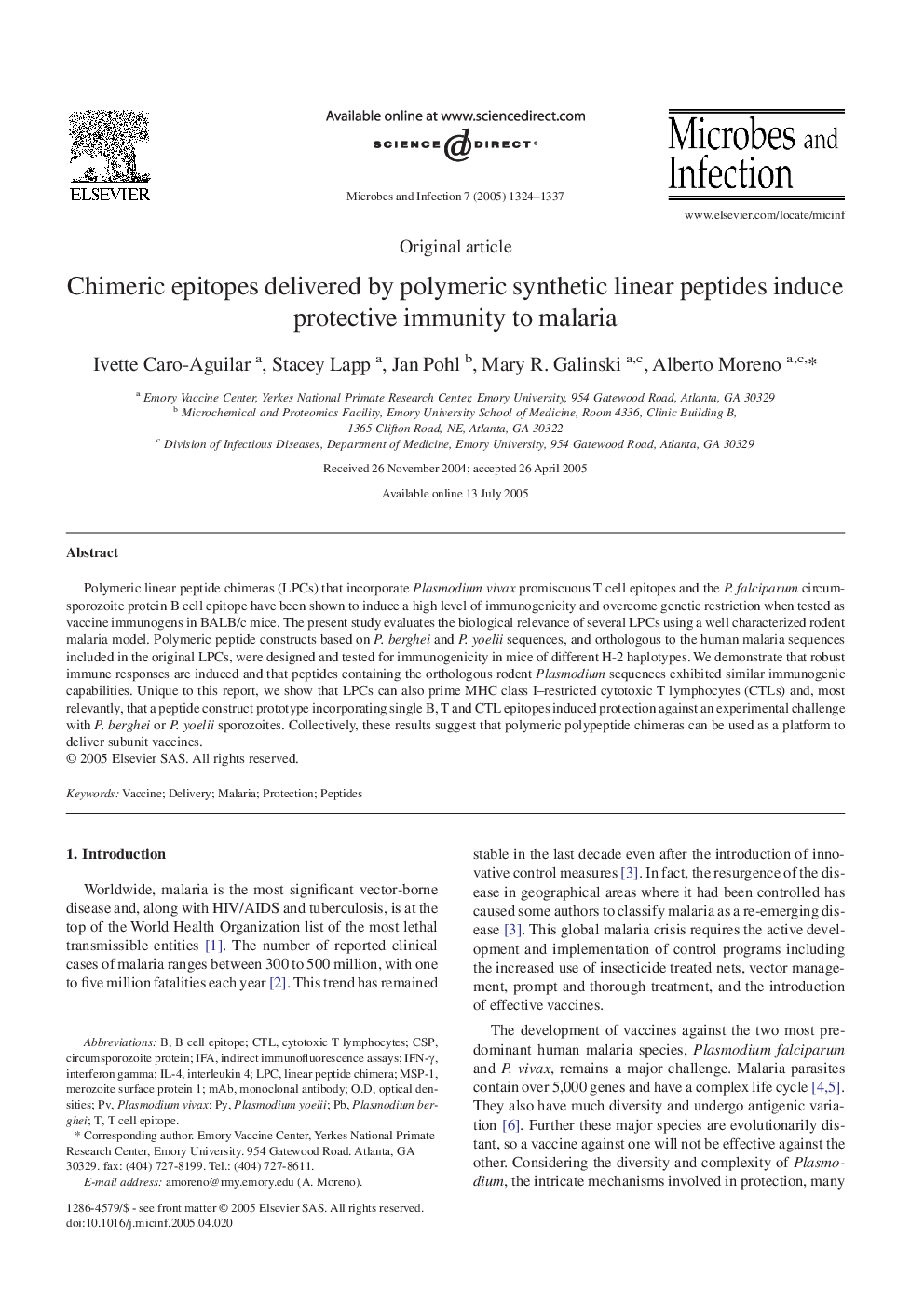| Article ID | Journal | Published Year | Pages | File Type |
|---|---|---|---|---|
| 9282924 | Microbes and Infection | 2005 | 14 Pages |
Abstract
Polymeric linear peptide chimeras (LPCs) that incorporate Plasmodium vivax promiscuous T cell epitopes and the P. falciparum circumsporozoite protein B cell epitope have been shown to induce a high level of immunogenicity and overcome genetic restriction when tested as vaccine immunogens in BALB/c mice. The present study evaluates the biological relevance of several LPCs using a well characterized rodent malaria model. Polymeric peptide constructs based on P. berghei and P. yoelii sequences, and orthologous to the human malaria sequences included in the original LPCs, were designed and tested for immunogenicity in mice of different H-2Â haplotypes. We demonstrate that robust immune responses are induced and that peptides containing the orthologous rodent Plasmodium sequences exhibited similar immunogenic capabilities. Unique to this report, we show that LPCs can also prime MHC class I-restricted cytotoxic T lymphocytes (CTLs) and, most relevantly, that a peptide construct prototype incorporating single B, T and CTL epitopes induced protection against an experimental challenge with P. berghei or P. yoelii sporozoites. Collectively, these results suggest that polymeric polypeptide chimeras can be used as a platform to deliver subunit vaccines.
Keywords
Related Topics
Life Sciences
Immunology and Microbiology
Immunology
Authors
Ivette Caro-Aguilar, Stacey Lapp, Jan Pohl, Mary R. Galinski, Alberto Moreno,
